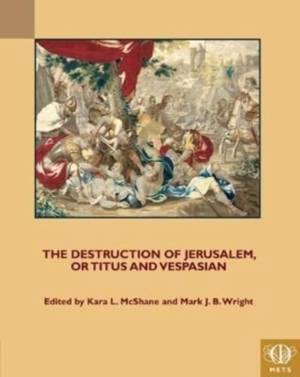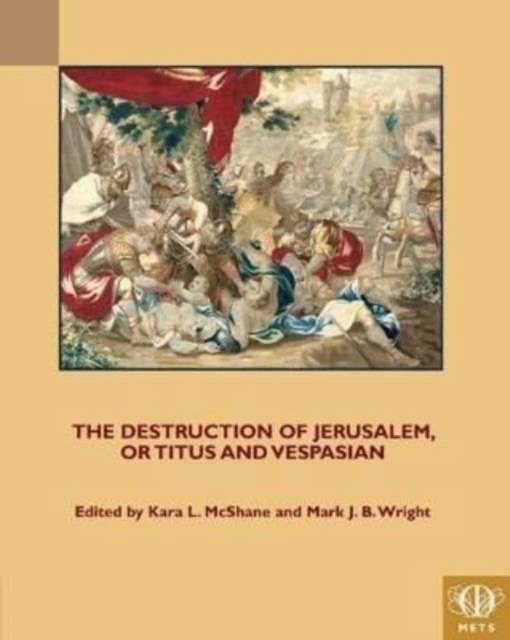
- Afhalen na 1 uur in een winkel met voorraad
- Gratis thuislevering in België vanaf € 30
- Ruim aanbod met 7 miljoen producten
- Afhalen na 1 uur in een winkel met voorraad
- Gratis thuislevering in België vanaf € 30
- Ruim aanbod met 7 miljoen producten
Zoeken
The Destruction of Jerusalem, or Titus and Vespasian
€ 35,95
+ 71 punten
Omschrijving
Within the English fall of Jerusalem tradition, nearly all scholarly attention has gone to Siege of Jerusalem, which has enjoyed critical and pedagogical attention of late. Michael Livingston's 2004 edition with the Middle English Texts Series/MIP drew attention to the text, and Adrienne Williams Boyarin has recently published a new translation with Broadview Press that appears in the Broadview Anthology of British Literature's medieval volume (and as a stand-alone volume). With this edition of the Destruction of Jerusalem, we hope to bring the poem (which is extant in more copies than Siege) into the conversation. METS/MIP is precisely the right series and press to publish Destruction. The work would complement METS volumes such as The King of Tars, Richard Coer de Lion, and Crusades romances such as Three Middle English Charlemagne Romances. Indeed, given METS's broad offerings in Middle English romance, the series is a natural home for Destruction. Destruction would be of tremendous value particularly in courses focused on Crusades traditions, traditions of medieval anti-Semitism, vernacular theology, or late medieval depictions of difference more broadly, matters of considerable scholarly and pedagogical interest to medievalists of late.
Specificaties
Betrokkenen
- Uitgeverij:
Inhoud
- Aantal bladzijden:
- 228
- Taal:
- Engels
- Reeks:
Eigenschappen
- Productcode (EAN):
- 9781580444873
- Verschijningsdatum:
- 29/10/2021
- Uitvoering:
- Paperback
- Formaat:
- Trade paperback (VS)
- Afmetingen:
- 208 mm x 259 mm
- Gewicht:
- 635 g

Alleen bij Standaard Boekhandel
+ 71 punten op je klantenkaart van Standaard Boekhandel
Beoordelingen
We publiceren alleen reviews die voldoen aan de voorwaarden voor reviews. Bekijk onze voorwaarden voor reviews.










